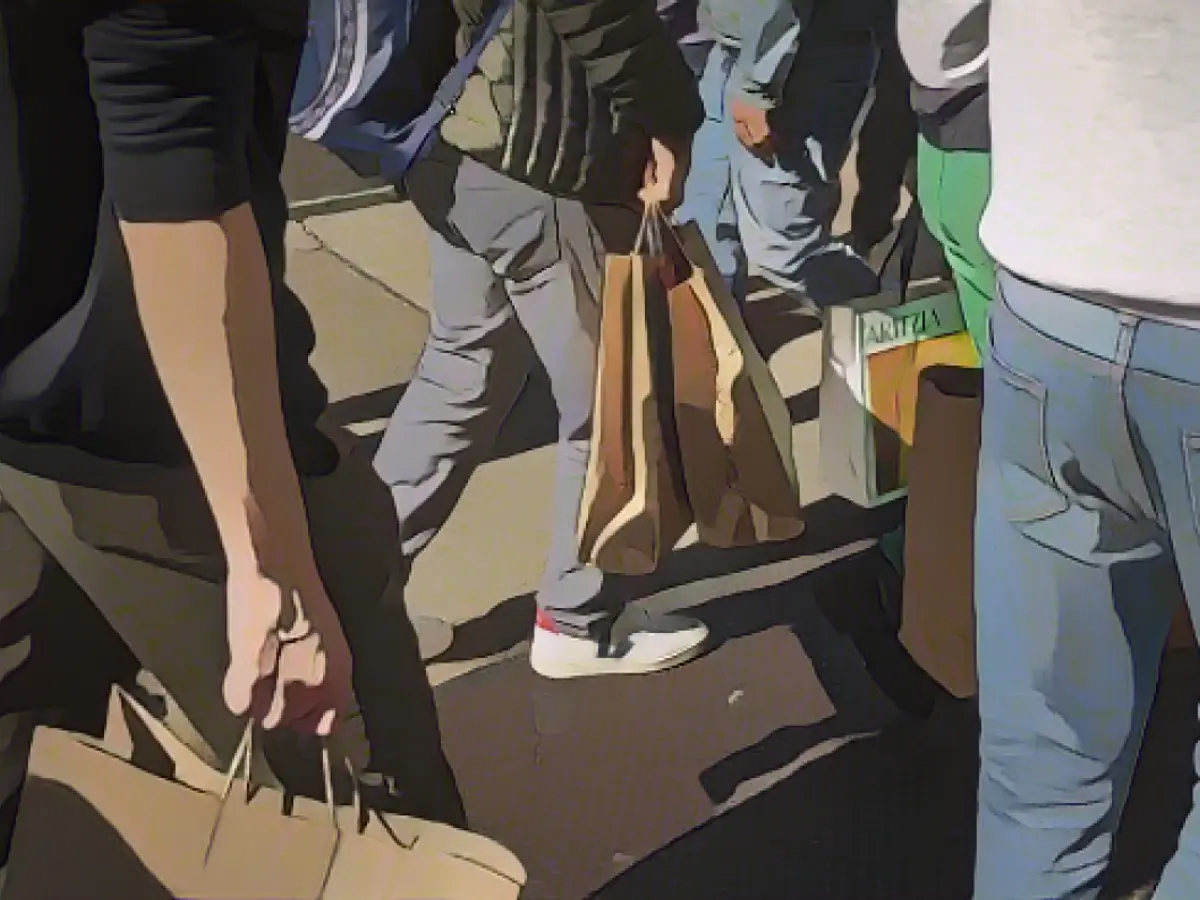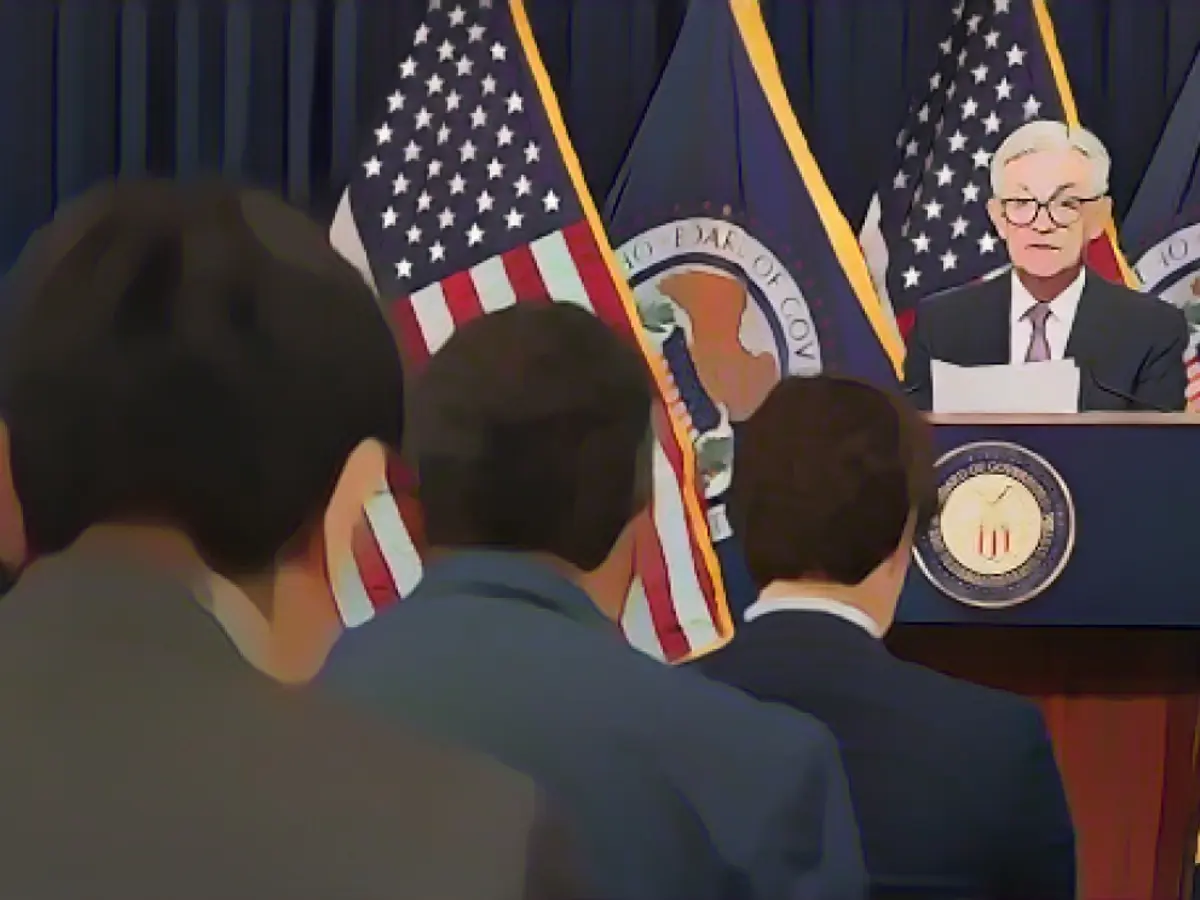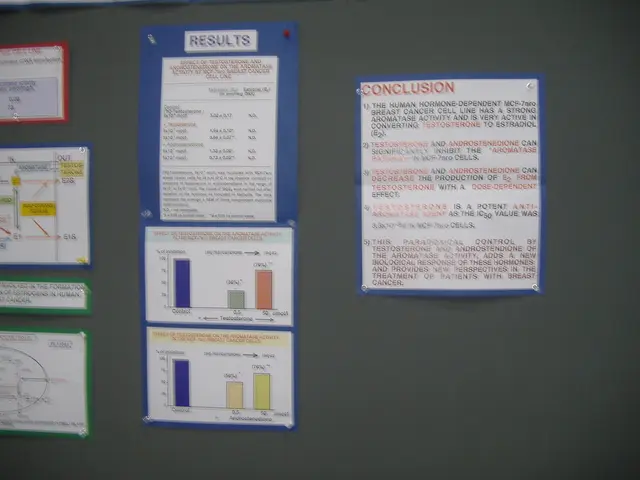The whispers of a recession are no longer just a possibility, but a question of when. In the recent past, the financial markets had to reconcile with the reality – formerly speculative, now a certainty - that the Federal Reserve would pursue the most aggressive monetary tightening since decades to combat inflation. The Fed's heartbeat is racing, but at what cost? A cost that might jeopardize consumer and business sectors extending far beyond US borders.
According to research firm Ned Davis, the likelihood of a global recession currently stands at an alarming 98%, carrying a certain historic credibility. This level of probability has been measured only twice before – in 2008 and 2020.

Economists typically ground their warnings of a recession on a multitude of indicators. Let's dissect five key trends:
- Strong Dollar
The US dollar plays a significant role in the global economy and international finance. It's stronger now than it has been in twenty years. The Fed is responsible for this. When the Fed increases interest rates, like it has since March, the dollar becomes more attractive for global investors. In uncertain economic climates – such as a global pandemic or an East Europe war – investors are more motivated to buy dollars, often in the form of US Treasury bonds.
While a stronger dollar represents an advantage for US travelers, it creates problems for nearly everyone else. Currencies like the pound, euro, yuan, and yen have all depreciated in value. As a result, it becomes costlier for these countries to import essential goods like food and fuel. In reaction, central banks facing inflation due to the pandemic increase interest rates even faster to support their currency's value.
A stronger dollar also exerts a destabilizing impact on Wall Street, as many S&P 500 companies operate globally. According to Morgan Stanley, a 1% increase in the US Dollar Index results in a negative 0.5% impact on S&P 500 earnings.

- Dying US Economic Motor
The US economy's primary engine is consumption. And American consumers are growing weary.
The rising inflation prices affect nearly everything, and the increase in wages has failed to keep pace. This results in consumers becoming more cautious. Gregory Daco, Chief Economist at EY Parthenon said, "The inflation-induced difficulties cause consumers to dip into their savings." The savings rate remained unchanged in August, Daco said, at just 3.5%. This is at its lowest since 2008 and far below the average of about 9% before the outbreak of the new coronavirus pandemic.
- Tightening Wall Street Belts
While a majority of the pandemic boosted business activity, across industries – inflation stifles profits. Firms have managed to transfer higher costs to consumers, effectively offsetting their margins. But this growth boom may prove unsustainable.
Mid-September saw an unexpected announcement from a company known as a leading economic indicator.
FedEx, operating in more than 200 countries, unexpectedly revised its outlook and warned that demand would fall and earnings could plummet by more than 40%. The CEO of the company was asked if he believed the waning demand is a sign of a looming global recession. “I believe so," he replied. “Numbers don't matter."
FedEx isn't alone. Apple stock prices plummeted after Bloomberg reported that the tech giant was canceling plans to ramp up iPhone 14 production due to lower-than-expected demand. Normal September hiring trends by employers have slowed down. Julia Pollak, Chief Economist at ZipRecruiter, noted, "There's no normal job growth rise in September."
Welcome to Bear Country
Wall Street has taken a hit, and stock markets are on track for the worst year since 2008 – unless someone still needs a scary, historically significant comparison.
But 2021 painted a different picture. During 2021, the S&P 500 surged by 27% due to a massive fiscal and monetary easing policy by the Federal Reserve in the spring of 2020 to prevent a market collapse. The party lasted until early 2022. However, as inflation set in, the Fed began tightening monetary policy by raising interest rates and winding down asset purchases that had supported the market.
Hangovers are brutal. The S&P 500, which influences 401k retirement plans for most Americans, has plummeted by almost 24% this year. All three major US stock indices, and unfortunately the bond market – traditionally a safe haven for investors when stocks and other assets fell, has been volatile.

Give it up for the Fed again.
Inflation and the sharp increase in interest rates have caused bond yields to fall, triggering a rise in credit spreads – effectively increasing the credit risk premium – and interest rates paid out to investors by the government for lending funds. By Wednesday, the yield on 10-year US Treasury bonds briefly surpassed 4%, reaching its highest level in 14 years. As a result, stock prices fell sharply after the Bank of England intervened in the bond market – equivalently to a seismic shift in a corner of the financial world originally engineered for stability, if not boring.
Likewise, European bond yields are also rising as central banks follow the Fed's lead in raising interest rates to bolster their currencies.
Investors now have limited safe havens to park their money, and this is unlikely to change until global inflation comes under control and central banks begin dismantling their controls.
Post-war scramble for scarce resources
The skirmish between economic, financial, and political crises is most apparent in the UK. Like the rest of the world, the UK is grappling with rising inflation, largely due to the shock of COVID-19 and trade disruptions resulting from the Russian invasion in Ukraine. As the West stops importing Russian natural gas, energy prices are surging, and reserves are dwindling.
These circumstances, on their own, are bad enough. But just over a week ago, the government of the new Prime Minister, Liz Truss, unveiled an ambitious tax-cutting package, which economists from both ends of the political spectrum harshly criticize as either unorthodox or devilish.
In essence, the Truss government argues it will cut taxes for all British citizens to stimulate spending and investments, theoretically blunting the impact of the recession. But the tax reductions are not funded, which means the government will have to borrow money to finance them.
This decision triggered a panic on financial markets and forced Downing Street into a standoff with its independent central bank, the Bank of England. Global investors have sold off UK government bonds, and the pound has hit an all-time low against the dollar since nearly 230 years – since 1792 when the US Congress established the US dollar as legal tender.
The Bank of England announced on Wednesday that it was applying emergency intervention measures to purchase British government bonds to restore market order. However, the effects of the Trusonomics drama go far beyond Wall Street broker offices.
British consumers, already grappling with a cost-of-living crisis and a 10% inflation rate (the highest among G7 nations), are now worried about increases in "credit costs." Millions of homeowners might be forced to increase their monthly mortgage payments by thousands, or even tens of thousands of pounds.
In summarizing, while widespread agreement exists that a global recession is coming at some point in 2023, contextualizing the severity and duration remains elusive. Strong labor markets and resilient consumers in the US can weather the storm better than other countries.
“In the coming months,” wrote economists at the World Economic Forum, “there are dark clouds on the horizon.”
“The short-term outlook for the world economy and a significant portion of the global population is gloomy,” they added. “These challenges will test the resilience of economies and societies and will result in severe human losses.”
Yet, they suggest there are reasons for optimism. Crises force change, which can ultimately enhance living standards and strengthen economies. “Businesses need to change,” said Rima Bhatia, Advisor at Gulf International Bank. “This is an opportunity. This is the silver lining amidst the storm.”
—Julia Horowitz, Anna Cooban, Mark Thompson, Matt Egan, and Chris Isidore from CNN Business contributed to reporting.
Additional Reading
The Fed's aggressive monetary tightening to combat inflation could increase interest rates and credit costs for businesses and consumers. Ned Davis Research reports that the probability of a global recession currently stands at 98%, highest ever recorded. However, the Fed's tightening moves may trigger a recession which will impact consumers and businesses beyond the US.
Source:
Enrichment Data:
While economists typically gauge recession risks based on a multitude of indicators, several key trends signal potential downturn. These are:
- Inflation and Interest Rates:
- As inflation rises, central banks may increase interest rates to curb inflation. This also puts pressure on borrowing costs and could lead to a potential recession.
- Stock Market Declines:
- A significant drop in stock prices (20% or more) from their peak is often viewed as a recession indicator. Investor sentiment indicates broader economic issues.
- Leading Economic Index:
- The Leading Economic Index (LEI) combines various economic indicators such as business and consumer confidence, manufacturing orders, and building permits. A downward trend in the LEI may signal an upcoming recession.
- Credit Spreads and Yield Curve Inversion:
- Credit Spreads: High credit risk can drive wider credit spreads, which could indicate a potential recession, although they cannot pinpoint the exact timing.
- Yield Curve Inversion: When short-term bond yields exceed longer-term yields, this signifies an expectation of lower interest rates in the future, indicating a potential recession.
- Unemployment and Gross Domestic Product (GDP):
- Rapidly rising unemployment rates can signal a potential recession. Conversely, a steady decrease in GDP growth may also serve as a recession indicator.
These trends combined can shed light on potential recession risks, although none of them can definitively predict a recession.








